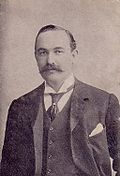
Isle of Wight is a constituency represented in the House of Commons of the UK Parliament since 2017 by Bob Seely of the Conservative Party.

Sir Peter Drummond Macdonald KBE was a Canadian-born Conservative Party politician in the United Kingdom. He was Member of Parliament (MP) for the Isle of Wight from 1924 to 1959.
The Hastings by-election 1908 was a Parliamentary by-election. Hastings returned one Member of Parliament to the House of Commons of the United Kingdom, elected by the first past the post voting system.

Sir Godfrey Baring, 1st Baronet DL, JP was a Liberal Member of Parliament for the Isle of Wight and later Barnstaple.
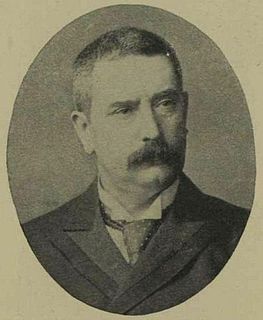
Sir Thomas Arthur Bramsdon was a British solicitor from Portsmouth and a Liberal Party politician who was elected for four non-consecutive terms as a Member of Parliament (MP) for Portsmouth constituencies.

Gerald Ashburner France was a British businessman and importer and Liberal Party politician.
The Shrewsbury by-election, 1913 was a parliamentary by-election held in England in April 1913 to elect a new Member of Parliament (MP) for the borough of Shrewsbury in Shropshire.
The Ross and Cromarty by-election was a Parliamentary by-election. It returned one Member of Parliament to the House of Commons of the Parliament of the United Kingdom, elected by the first past the post voting system.
The West Ham North by-election was a Parliamentary by-election which was held in 1911. It returned one Member of Parliament to the House of Commons of the Parliament of the United Kingdom, elected by the first past the post voting system.
The Carmarthen District by-election, 1912 was a Parliamentary by-election held in the United Kingdom on 29 January 1912 for the Carmarthen District in Wales. The constituency of Carmarthen District of Boroughs, was centred on the boroughs of Carmarthen and Llanelli. It returned one Member of Parliament to the House of Commons of the Parliament of the United Kingdom, elected by the first past the post voting system.
The Manchester South by-election was a Parliamentary by-election. It returned one Member of Parliament to the House of Commons of the Parliament of the United Kingdom, elected by the first past the post voting system.
The Holmfirth by-election was a Parliamentary by-election. It returned one Member of Parliament to the House of Commons of the Parliament of the United Kingdom, elected by the first past the post voting system.
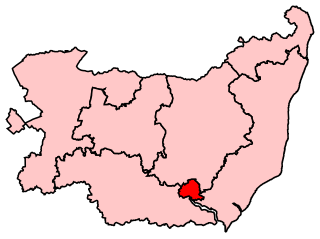
The Ipswich by-election was a Parliamentary by-election. It returned one Member of Parliament to the House of Commons of the United Kingdom, elected by the first past the post voting system.
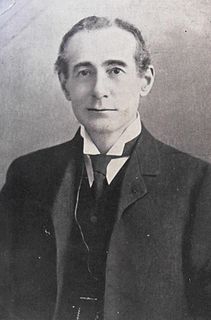
The Crewe by-election was a Parliamentary by-election. It returned one Member of Parliament to the House of Commons of the United Kingdom, elected by the first past the post voting system.
The Isle of Thanet by-election, 1919 was a parliamentary by-election for the British House of Commons constituency of Isle of Thanet on 15 November 1919.
The Stirling Burghs by-election was a Parliamentary by-election. It returned one Member of Parliament to the House of Commons of the United Kingdom, elected by the first past the post voting system. The by-election was caused by the death of the former Liberal Prime Minister, Sir Henry Campbell-Bannerman
The Ilkeston by-election was a Parliamentary by-election in Derbyshire. It returned one Member of Parliament to the House of Commons of the United Kingdom, elected by the first past the post voting system.
The Basingstoke by-election, 1934 was a parliamentary by-election for the British House of Commons constituency of Basingstoke on 19 April 1934.
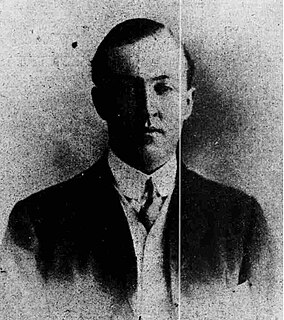
St John Hutchinson KC was a British barrister and Liberal Party politician.
The Ludlow by-election was a Parliamentary by-election. It returned one Member of Parliament to the House of Commons of the United Kingdom, elected by the first past the post voting system.




